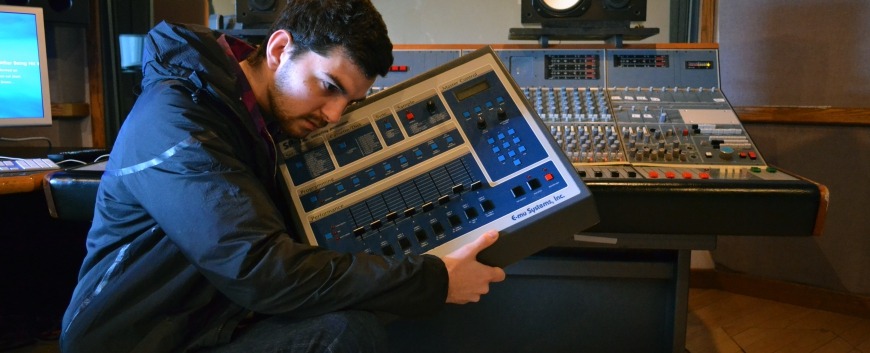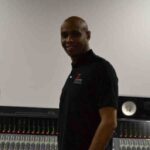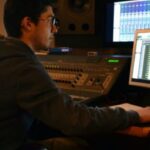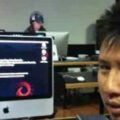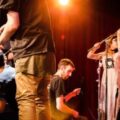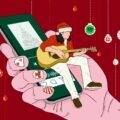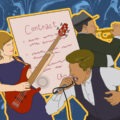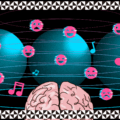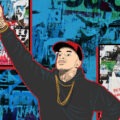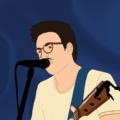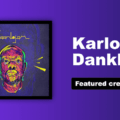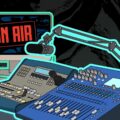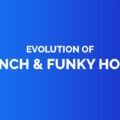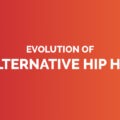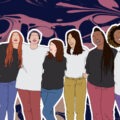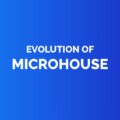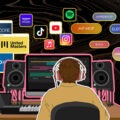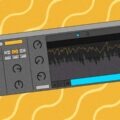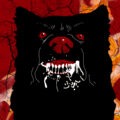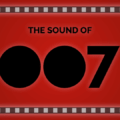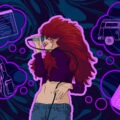What was your experience like at RAC?
“RAC was a really incredible experience. It was great. I feel like one of the biggest benefits of going to Recording Arts Canada was meeting talented people and staff, as they were all really knowledgeable and opened my mind to different facets of music and sound that I wasn’t aware of before.
The benefits of having great studios available to me was an eye opener and it changed how I perceived things. This helped me get out of my comfort zone and get into a more professional and ambitious setting. The curriculum was good. I had a really good time, and I was focused and kept on top of things by the teachers. There were classes I was more focused on, but they were all interesting. Anything Danny Jacques taught was great. You got way more out of it when you talked and pushed, rather than just grinding along. That’s where having great teachers came into play. You can ask questions and they have real answers, unlike just going to the Internet.”
What was your background in music prior to enrolling to RAC?
“I went to Rosedale Heights arts school for music. My musical background started as I dabbled in guitar before high school, then decided I wanted to play drums instead of hitting notes. I played in the school band, then formed my own band called Squeeky and the Terribles, which was a running joke with the band teacher. We played intense jazz fusion funk stuff. We would write songs in like 15/8 time; really weird stuff. It gave me a really weird meter and helped to develop my skills. Near the end of high school I got into hiphop and beats. That was my inspiration, MF Doom and J Dilla so I got hit with that pretty hard. It was a “this is it moment” kind of thing.”
What kind of music projects did you do before graduating from RAC?
“I kind of liked the aesthetics project, where you had to compose a song between 3 classes, geared towards creating a new movement in music. You had to make 3 very different sections using Reason. I got really obsessed with it and was going off with 100 tracks on the Reason file alone. It was outlandish. I’m still tweaking that composition and working on it to put It with some live instrumentation.”
Did anything particularly influential happen during your studies at RAC that shaped the decisions you’ve made since graduating?
“Yes. When I started making beats I was influenced by J Dilla, my sound was very sample heavy, sampling from old records and beats. As I progressed through RAC I was getting more interested in creating sounds and using plugins more creatively, than using them dryly and with presets. That came more from learning the basis and what everything did, so I could start getting more creative with it and use the studio as a creative tool more than just a space. Instead of using it as a machine, I used it as a tool to get the sound I wanted. Experimenting will take you all the way, instead of just using presets and starting points.”
What are you currently working on?
“Right now I’m working on a few things. I have a project coming out with a Vocalist names Emmett Verhoog. He’s a young guy who went to the same arts high school as me, so he’s got this killer neo-soul, soulful voice. We’re working on an EP that should release this year. I’ve been trying to pull it all together, but we’re still working on some new tunes that we’re trying to work in.
“Im also working on the pre-production for my own full-length album. It’s going to be all live instrumentations, no samples. Its going to be engineered and co produced with a friend of mine names Braden Solder. He’s more of a folk / rock producer who’s really adept with equipment making like mics, amps and compressors. Since he also uses it, he gets his own signature sound with his own signature gear. I want this project to pop and stand out from all the rest on sound cloud. I’ve grown out of sampling, for sure.”
Any recording session that was particularly memorable?
“Yes. There was a super ghetto recording session at my place. We just recorded in my completely untreated, super crappy closet. We were doing a cover of Usher’s “You got it bad” (Which is coming out soon on a cover compilation album) That was an amazing experience, because it helped me realize that so much of a good take comes from the vibe and feel of the take / session. You can have the most expensive gear, but if your singer sucks, so will the take. He just did one take, one double and blew us all away.”
How would describe the Toronto music scene?
“The actual music that’s happening on an underground level, the beat maker scene and indie scene are both booming right now. Overall I think the Toronto music scene is good, but you have to find your place in it, as there’s a lot of doppelgängers and sound-alike bands that can get blended in. It’s a pretty fun scene.”
What are your personal goals?
“My goal is to grab all the knowledge I can. I want to become really aware of everything I can about sound design. I had a really good time at RAC learning about sound design, and I got a really good broad sense in what I liked, and it helped me focus in on what I actually needed to learn more of, and continue my education into something specific. I want to focus in on sound design and recording itself to pave my own career, and have all the skills possible to get the sound I’m looking for.”
Do you have any advice for people interested in starting a career in music & recording?
“I made 200 crappy beats before I made a good one. Don’t get discouraged. Now all everyone is interested is instant results, and while music creation may be easier now than ever, it takes time unless you’re a 1-in-a-million musical prodigy. I also suggest collaborating with people just as good or better than you to help you learn new things, and have a discussion about how they do things. Keep experimenting with everything you can, because it all has it’s own sound and work flow, especially plugins and DAWS.”
Check out Koal’s work on Soundcloud and Bandcamp
